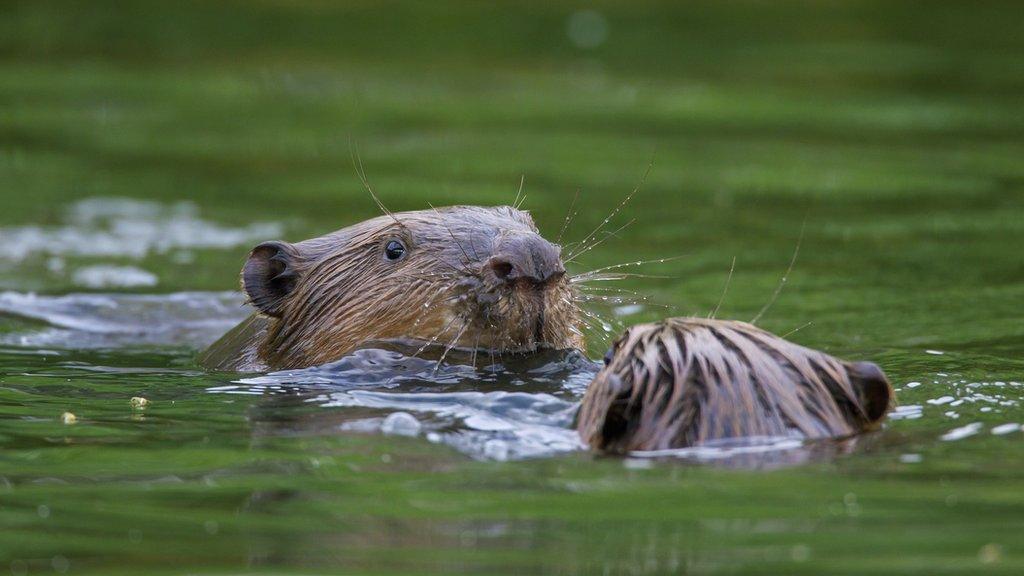Climate change: Scottish mountain hares are becoming more exposed.
- Published
- comments
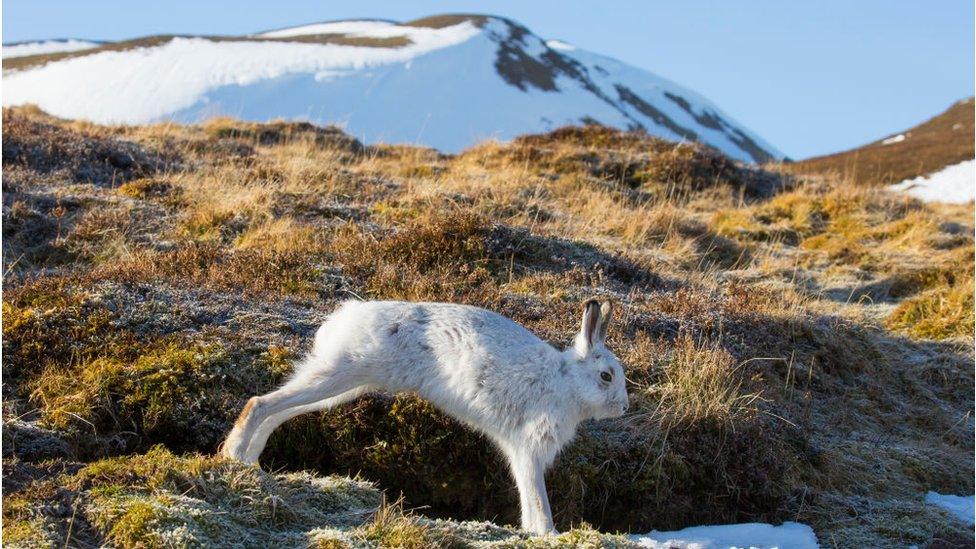
The Scottish Mountain hare is becoming more exposed due to a lack of snow in its environment
A new study claims that the Scottish mountain hare is becoming less camouflaged because climate change means less snow is falling.
A Scottish mountain hare changes its coat seasonally. Usually, the animal can be spotted with a grey-brown coat in the summer and then a white coat in the winter, to help it blend in to the snow.
Researchers from the University of Michigan believe that the animals are not adapting to climate change quickly enough - leaving them exposed to predators when their white winter coats stand out against the background.
Scott Newey a co-author of the study said: "The camouflage mismatch of mountain hares is really surprising and worrying and suggest that some wild animals can't adapt quick enough to match the rate of climate change".
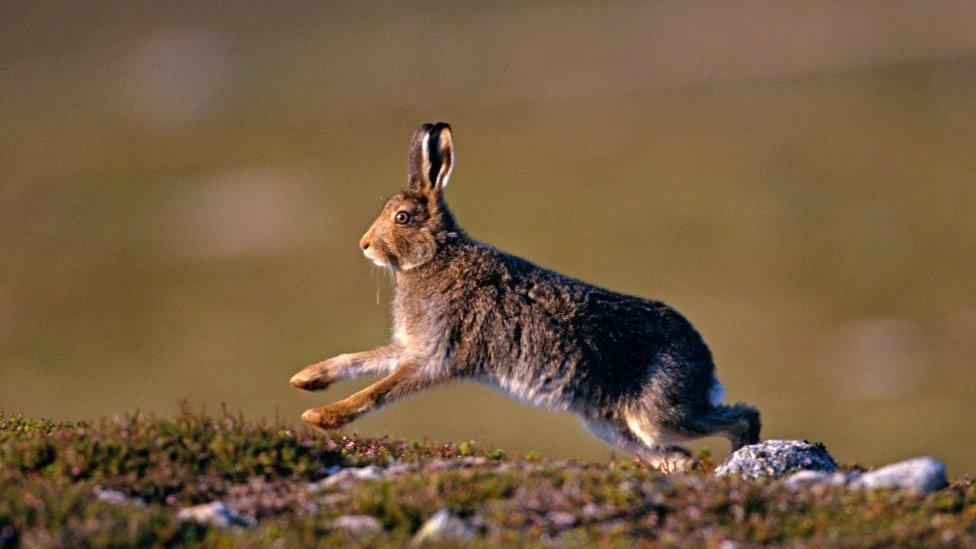
The Scottish mountain hare changes its coat in the summer to a brown one
What are the scientists saying?
The study compares data from the 1950's and 1960's on the animals phenological shifts, or moult timings - when their fur changes from brown to white.
Researchers also calculated the change in snow and temperature over the past 65 years within the Scottish highlands. They concluded that even though there had been a dramatic shift in climate, there had been very little change in the hare's moult timings.
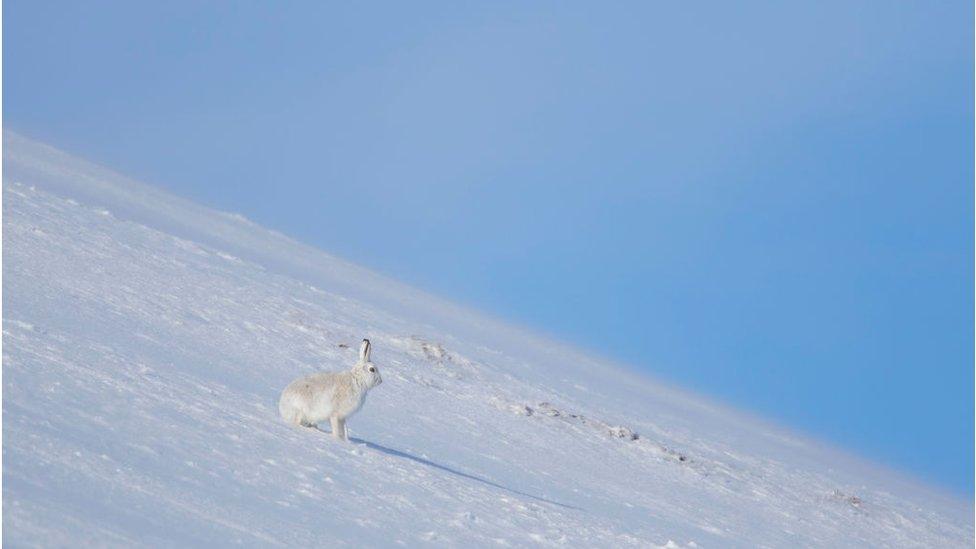
Spot the hare: camouflage protects these animals from predators
On average there are 35 more days a year where white hares are found on a snowless background, making them extremely easy for predators to spot.
The study fears that if the hares do not adapt to the shift in climate, their numbers could start to drop.
However, even though the species is becoming more exposed, it could be that a lack of predators is part of the reason that their moult timings haven't changed.
- Published3 June 2020

- Published26 July 2014
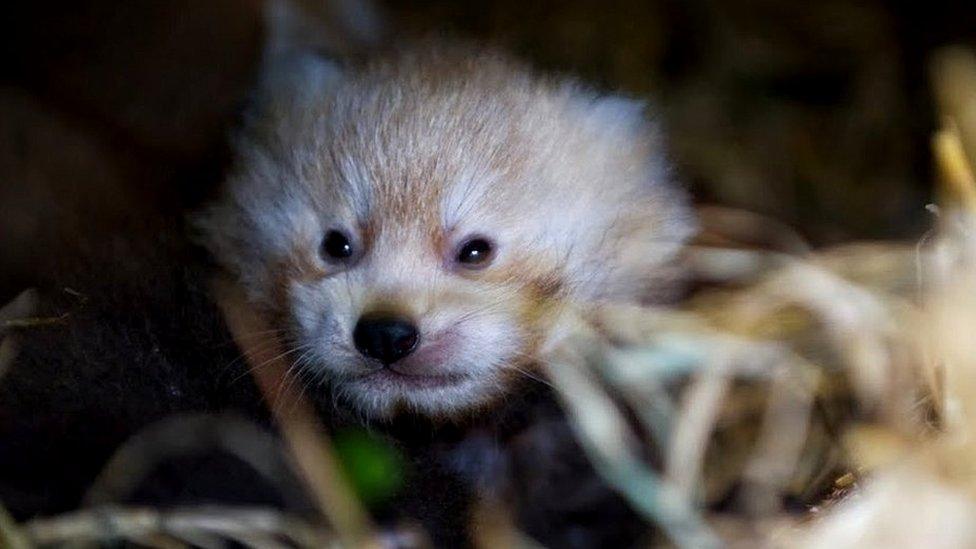
- Published17 August 2020
